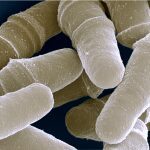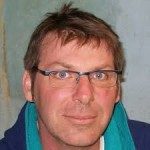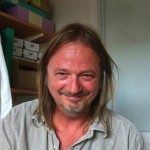Conférenciers
Présentation
Meiotic cells have developed a sophisticated molecular pathway allowing homologous chromosome to interact, pair and be connected. This pathway relies on homologous recombination events which are initiated by the programmed induction of DNA double strands breaks (DSBs). The absence of meiotic recombination leads to sterility. In mammals, about 300 DSBs are induced in each oocyte or spermatocyte at the onset of the first meiotic prophase. The control of DSB formation, in genomic localization, time and activity, is essential to ensure that all DBSs are repaired by homologous recombination. These molecular events are therefore at the same time a major challenge for genome stability and a driving force for generating genetic diversity at each generation, a unique feature of sexual reproduction.
Our lab has been aiming to understand the mechanism and regulation of meiotic DSB formation, and specifically the control of the localization and the activity responsible for these events.
We discovered a few years ago that the distribution of meiotic recombination is determined by PRDM9 in humans and mice (along with Paigen and Donnelly’ s groups). PRDM9 is a sequence-specific DNA binding protein with a methyl-transferase activity, catalysing H3K4me3 and H3K36me3. We have determined the role of PRDM9 methyltransferase activity and more recently identified HELLS, a chromatin remodeler as a partner of PRDM9. We have also identified components directly involved in DSB formation, such as TOPOVIBL, a partner of SPO11 carrying the catalytic activity, thus highlighting the evolutionary link with Type II DNA Topoisomerases. Our current view of how these molecular steps are coordinated to ensure the proper formation and repair of DSBs will be presented.
(function($) {
/*
* render_map
*
* This function will render a Google Map onto the selected jQuery element
*
* @type function
* @date 8/11/2013
* @since 4.3.0
*
* @param $el (jQuery element)
* @return n/a
*/
function render_map( $el ) {
var MY_MAPTYPE_ID = 'custom_style';
var featureOpts = [{"stylers":[{"hue":"#0088ff"}]}];
var styledMapOptions = {
name: 'Custom Style'
};
var customMapType = new google.maps.StyledMapType(featureOpts, styledMapOptions);
// var
var $markers = $el.find('.marker');
// vars
var args = {
zoom : 16,
scrollwheel : false,
center : new google.maps.LatLng(0, 0),
mapTypeId : google.maps.MapTypeId.ROADMAP,
mapTypeId : MY_MAPTYPE_ID
};
// create map
var map = new google.maps.Map( $el[0], args);
map.mapTypes.set(MY_MAPTYPE_ID, customMapType);
// add a markers reference
map.markers = [];
// add markers
$markers.each(function(){
add_marker( $(this), map );
});
// center map
center_map( map );
}
/*
* add_marker
*
* This function will add a marker to the selected Google Map
*
* @type function
* @date 8/11/2013
* @since 4.3.0
*
* @param $marker (jQuery element)
* @param map (Google Map object)
* @return n/a
*/
function add_marker( $marker, map ) {
// var
var latlng = new google.maps.LatLng( $marker.attr('data-lat'), $marker.attr('data-lng') );
//var image = 'https://research.pasteur.fr/wp-content/themes/biologyx2/images/logomap.png';
var myIcon = new google.maps.MarkerImage('https://research.pasteur.fr/wp-content/themes/biologyx2/images/map-pin.png', null, null, null, new google.maps.Size(32,32));
// create marker
var marker = new google.maps.Marker({
position : latlng,
map : map,
icon : myIcon
});
// add to array
map.markers.push( marker );
// if marker contains HTML, add it to an infoWindow
if( $marker.html() )
{
// create info window
var infowindow = new google.maps.InfoWindow({
content : $marker.html()
});
// show info window when marker is clicked
google.maps.event.addListener(marker, 'click', function() {
infowindow.open( map, marker );
});
}
}
/*
* center_map
*
* This function will center the map, showing all markers attached to this map
*
* @type function
* @date 8/11/2013
* @since 4.3.0
*
* @param map (Google Map object)
* @return n/a
*/
function center_map( map ) {
// vars
var bounds = new google.maps.LatLngBounds();
// loop through all markers and create bounds
$.each( map.markers, function( i, marker ){
var latlng = new google.maps.LatLng( marker.position.lat(), marker.position.lng() );
bounds.extend( latlng );
});
// only 1 marker?
if( map.markers.length == 1 )
{
// set center of map
map.setCenter( bounds.getCenter() );
map.setZoom( 15 );
}
else
{
// fit to bounds
map.fitBounds( bounds );
}
}
/*
* document ready
*
* This function will render each map when the document is ready (page has loaded)
*
* @type function
* @date 8/11/2013
* @since 5.0.0
*
* @param n/a
* @return n/a
*/
$(document).ready(function(){
$('.acf-map').each(function(){
render_map( $(this) );
});
});
})(jQuery);




